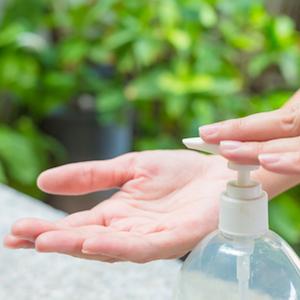Hand sanitizers are ubiquitous. They are used by staff in hospitals, and many people keep a small bottle of hand sanitizer in their bags or purses. The active ingredient is often some kind of alcohol, such as isopropanol (rubbing alcohol) or ethanol (the drinkable kind).
New research published in the American Journal of Infection Control suggests that professionals who administer breath alcohol tests should stay away from sanitizers that contain ethanol, as they can cause breathalyzers to produce a false positive result.
The research team performed a series of breathalyzer tests on ten volunteers with an Alco-Sensor III, a device approved by the U.S. Department of Transportation and law enforcement agencies. The person administering the test (the "tester") would first obtain a baseline breath alcohol measurement on each volunteer. Then, he would cleanse his hands with a 70% ethanol sanitizer, after which he would perform a second breathalyzer test on the volunteer. The results of the breathalyzer tests are shown below.

If the tester immediately administered the breathalyzer after using ethanol-based hand sanitizer (either foam or gel), the test produced a result of about 0.15 g/dL, which is nearly two times the legal alcohol limit of 0.08 g/dL. The breathalyzer continued to produce a false positive result up to three minutes after the tester used hand sanitizer. (If the tester let his hands dry or put on gloves, the breathalyzer barely detected any alcohol.)
The implications of this research are clear: A police officer or healthcare provider should not use ethanol hand sanitizers if they are to perform a breathalyzer test. Similarly, employers with "zero tolerance" drug and alcohol policies may want to keep hand sanitizers away from employees who perform spot drug tests. Obviously, artificially inflating the results is not likely to be in the best interest of the person being tested.
So, if you ever find yourself in the unenviable position of being asked by an authority figure, "Have you been drinking?" you may be justified in responding, "Have you recently used hand sanitizer?"
Source: Beth L. Emerson, Travis Whitfill, Carl R. Baum, Katherine Garlin-Kane, Karen Santucci. "Effects of alcohol-based hand hygiene solutions on breath alcohol detection in the emergency department." Am J Infect Control. 44 (12): 1672–1674. Published: 1-December-2016. DOI: http://dx.doi.org/10.1016/j.ajic.2016.05.036




